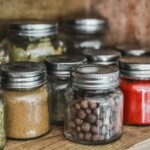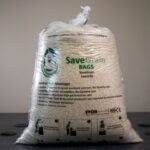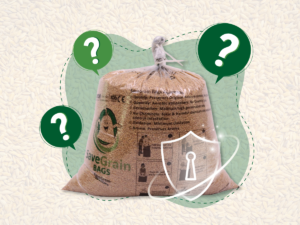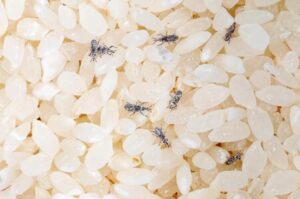Whether you’re a professional chef or a home cook, or even just a person who loves eating food, you know the value of spices. A bit of spice here and a sprinkle there can liven up even the most boring of meals. Food is essentially a basic need, but spices allow it to feel like a luxury. Considering this, it makes sense as to why it’s important to discuss how to store spices.
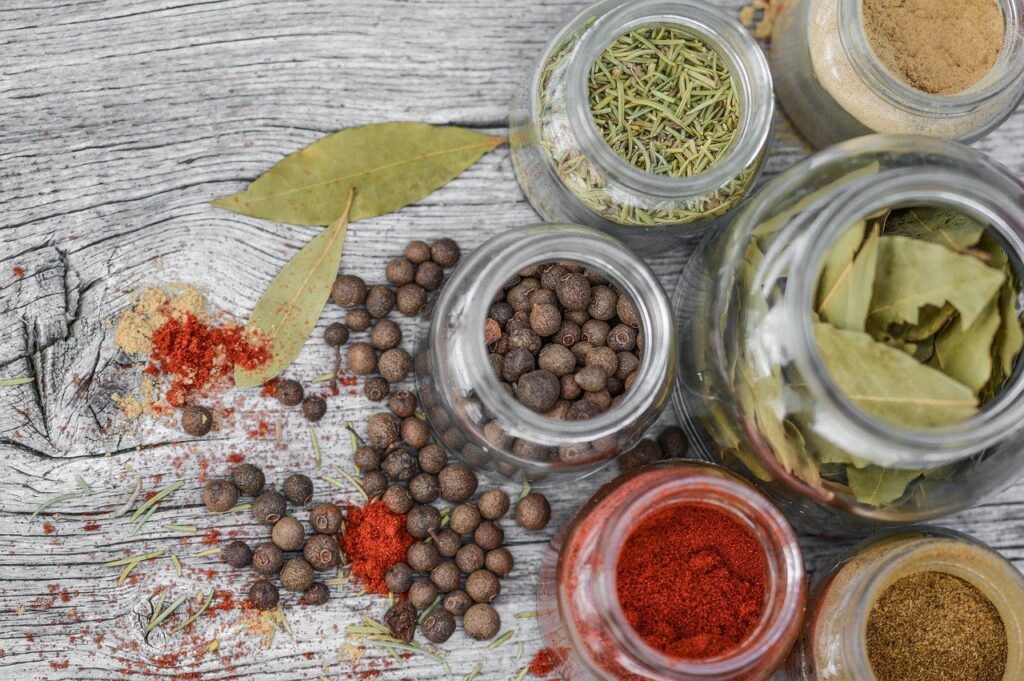
While spices are usually long-lasting kitchen ingredients compared to most, they actually do have a shelf-life, from a few months to years. So in order to get the maximum taste, flavour and longevity out of spices, it’s good to know what affects the lifespan of spices and how to store them well long term.
Threats to shelf life of spices?
Light, heat and moisture are the major threats. They cause spices to lose their potent flavour and aroma upon exposure. Moisture can also lead to mold growth or contamination by pests. Hence, spices need to be protected from these threats.
Tackling threats and storing spices properly
- Avoid dumping spices over a hot pan. Shaking a spice jar over a hot stove or pan lets steam in. This introduces moisture, which can cause spices to become caked or moldy, affecting their flavour. It’s better to use a spoon instead.
- Don’t use a wet spoon to take out spices. Use a dry spoon while taking out or measuring a spice from a container to avoid introducing moisture into it.
- Store spices separately: Prevent cross-contamination as that can taint the taste by storing each spice separately. Keeping a well organised and labelled spice drawer is only going to amp up your food quality.
- Store with salt. Although this might give everything a salty taste, storing dried crushed spices with salt will help prolong shelf-life.
- Avoid freezing spices for everyday use. While using the freezer to store spices in bulk is a good option, avoid using it for everyday-use spices as the frequent temperature fluctuation can seriously degrade their quality.
- Store in a cool, dark place. To protect spices from light, heat and moisture, store them away from windows, as well as away from the stove, fridge, microwave and dishwasher; keep them stored preferably in a cupboard or drawer. Also, opt for an opaque container over a transparent one for storing spices.
- Opaque and airtight spice jars. It’s of utmost importance that the spice jar be airtight otherwise spices will lose their flavour as their volatile oils evaporate out. Both plastic or glass jars will do. Glass is preferred since it is non-porous but again, it has to be painted from outside to be made opaque. Spices are often stored in mason glass jars at home.
- Keep checking your spices frequently. Lastly, we recommend that you keep checking up on your spices regularly. The best way to gauge the health of a spice is through its vibrancy and aroma. If you notice a spice losing its flavour or fragrance, discard it.
Following these tips can certainly give you good odds of prolonging the lifespan of your perishables.
Hermetic bags and pouches are good substitutes to replace the commonly used glass and plastic containers. It offers an airtight and moisture-tight barrier system, protecting the spices from humidity as well as contamination by pests. It is just as effective as the traditional storage methods, while being more affordable and environment-friendly.
Save Grain Bags offers bags and pouches leveraging hermetic technology. These bags can be used for storing spices properly, whether in the field or at home.
